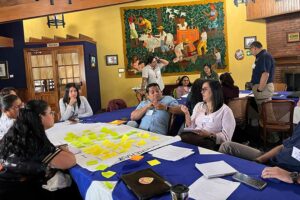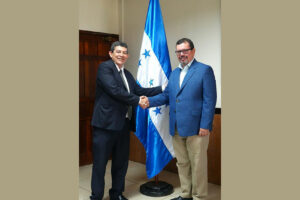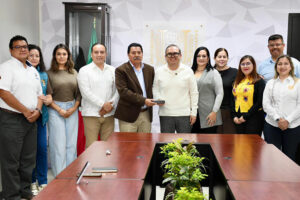CATIE shares experiences on mechanization of sustainable and regenerative coffee farming with the International Coffee Council
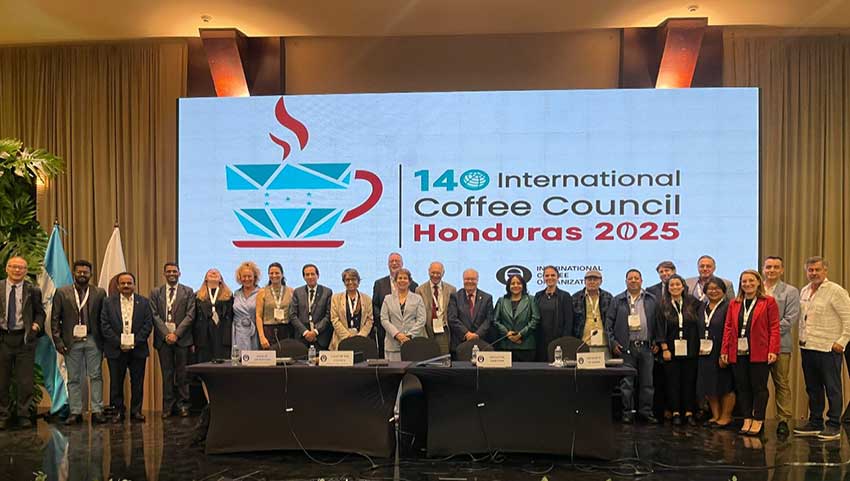
- During the Council’s most recent session, held in Honduras, Dr. Elias de Melo presented the technical and scientific basis for this approach, as well as case studies from pilot farms.
On the occasion of the 140th session of the International Coffee Council, held in San Pedro Sula, Honduras, from October 13 to 17, the Tropical Agricultural Research and Higher Education Center (CATIE) presented some “Considerations on mechanization for sustainable and regenerative coffee farming,” by Dr. Elias de Melo, coordinator of the International Virtual Master's and Advanced Diploma Program in Sustainable and Regenerative Coffee Farming.
The International Coffee Council is the highest decision-making body in the global coffee sector, under the direction of the International Coffee Organization (ICO). Its most recent meeting in Honduras was a forum for defining and promoting global policies for the coffee sector, with the participation of representatives from producing and consuming countries around the world.
One of the topics discussed during the event was how to strengthen sustainability and ensure a future with quality of life for coffee-producing families. CATIE's presentation was given during the panel on “Mechanization and decent income.”
“The presentation consisted of presenting technical and scientific foundations, as well as cases applied in pilot farms, of the holistic approach to the mechanization of coffee farming, guaranteeing both the benefits of efficiency and productivity in the management of coffee plantations and, at the same time, complying with the principles of sustainability and restoration of soils, water, and biodiversity in the context of climate change adaptation and mitigation,” explained Dr. De Melo.
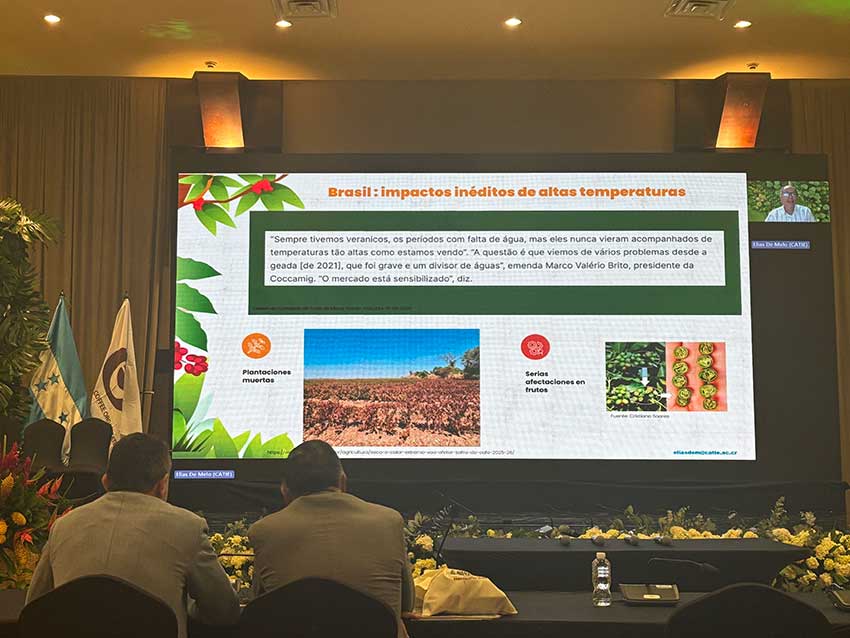
During his presentation, De Melo explained that, in addition to the classic reasons for mechanizing coffee farming (increased productivity and reduced costs), there are other factors such as the intensification of climate change, imbalances in biogeochemical cycles, accelerated loss of biodiversity, depletion of quality water resources, as well as poverty and migration associated with environmental degradation.
The 140th session of the International Coffee Council was attended by representatives from more than 70 countries. According to the Honduran Ministry of Agriculture and Livestock, “the ICO highlighted the progress made in farm renewal programs, cooperative management, and technological adaptation, promoted by countries such as Brazil, Colombia, Costa Rica, and Honduras, with a view to strengthening production in the face of climate change and ensuring the stability of the world market.”
Through postgraduate training, research, and technical cooperation activities, CATIE works to strengthen coffee agroecosystems by promoting sustainable and regenerative coffee farming, which has a significant impact on the economy of thousands of families in Latin America and the Caribbean who depend on this important productive activity.
____
Main photo: Honduran Secretariat of Agriculture and Livestock
More information:
Elias de Melo Virginio Filho
Coordinator
International Virtual Master's and Advanced Diploma Program in Sustainable and Regenerative Coffee Farming
CATIE
eliasdem@catie.ac.cr
Written by::
Alejandro Portilla Navarro
Communicator
Communications and Marketing Office
CATIE
alejandro.portilla@catie.ac.cr

